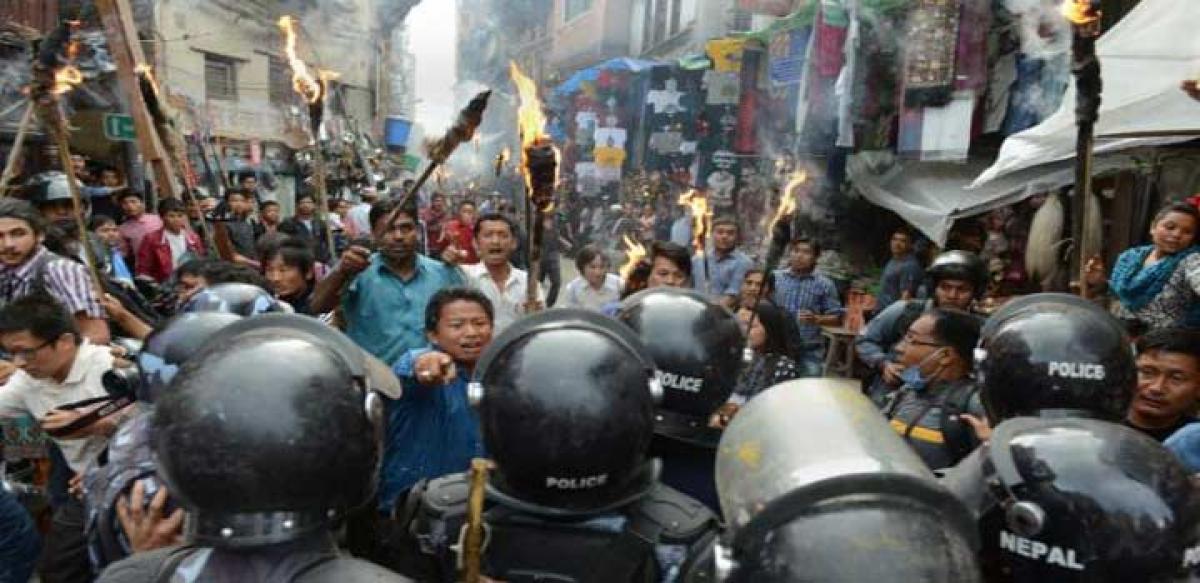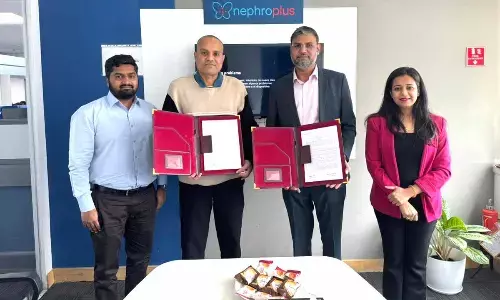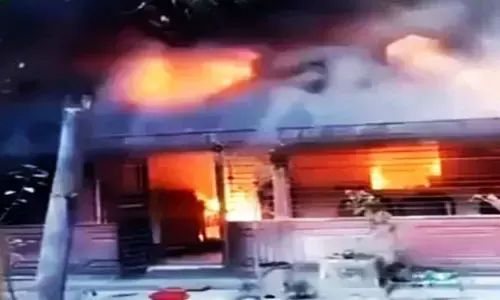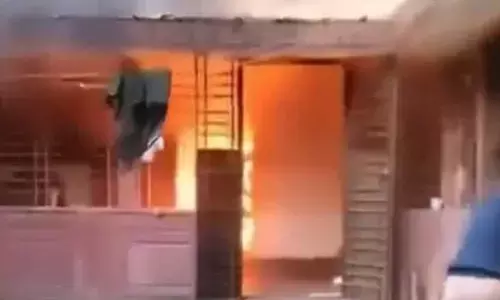Post-Constitution crisis in Nepal

Post-Constitution crisis in Nepal. Madhes refers to the low-lying land in Nepal bordering India. The Madhes region, alternately called the Terai, is now home to half the country’s population, although the Madhesis residing in the region are only one third of the total population.
Madhes refers to the low-lying land in Nepal bordering India. The Madhes region, alternately called the Terai, is now home to half the country’s population, although the Madhesis residing in the region are only one third of the total population. Yet, the Madhesis are under-represented in all areas of national life. Almost 3.5 million Madhesis have not yet obtained citizenship certificates. India has only raised its genuine security concerns as the entire Madhes region, along its border with Nepal, is witnessing unprecedented turmoil
At a time when Nepal should be celebrating its most awaited Constitution, people in the southern plains (known as Madhesis) who constitute almost half the population, are revolting against it. The Constitution, aimed at establishing lasting peace, has instead triggered fresh conflicts as it is being shunned by the marginalised communities such as Madhesis, Tharus, Janajatis, Dalits and women.
.jpg)
A last ditch effort by the Indian Prime Minister’s special envoy S. Jaishankar failed to convince Nepal’s major political parties to take measures to pacify the situation. Madhes refers to the low-lying land in Nepal bordering India. It consists of about a quarter of the country’s total land area, stretching horizontally for about 885 km from the Mahakali River in the west to the Mechi River in the east, with a width varying from four to 52 km.
It also includes the lower reaches of the Himalayas, known as the Siwalik range, with its valleys in certain areas in the north (the inner Madhes). The Madhes region, alternately called the Terai, is now home to half the country’s population, although the Madhesis residing in the region are only one third of the total population. Yet, the Madhesis are under-represented in all areas of national life.
They are inadequately represented in state organs — they occupy less than 12 per cent of the posts in the judiciary, executive, legislature, political parties, industry and civil society, and less than five per cent in international organisations and multilateral donor agencies. Their representation is negligible in the security forces, particularly in the army, which does not have a single senior Madhesi officer. Citizenship Rights have been one of the major issues of concern for the Madhesis.
The 1964 Citizenship Act and the 1990 Constitution imposed stringent criteria based on descent, which sought to disregard the claims of citizenship of the Madhesi people through naturalisation. Ironically, local officials often demand land ownership titles before granting citizenship even though without citizenship it is not possible to obtain land ownership titles.
A government commission in 1994 reported that almost 3.5 million Madhesis have not yet obtained citizenship certificates. Those without citizenship cannot apply for government jobs, register births or marriages, get a passport, compete in elections, register a business, obtain bank loans or access government social benefits.
Major demands being raised by the Madhesis are:
Delineate electoral constituencies based on population, geography and special characteristics which were accepted by the Interim Constitution after the Madhesh Movement of 2008.
Incorporate the right to participate in state structures on the basis of principles of proportional inclusion, which was accepted by the Interim Constitution. Similarly, seats in the national assembly should be allocated on a proportional basis. Since Madhes has 51 per cent of the population, out of the proposed 165 electoral constituencies being proposed for direct elections, 83 should be allocated to the provinces in the Madhes region.
Citizenship should be passed on through the name of the mother as well. There should be no discrimination based on citizenship acquired by descent or naturalisation. The new Constitution states that only citizens by descent will be entitled to hold the posts of President, Vice-President, Prime Minister, Chief Justice, Speaker of Parliament, Chairperson of National Assembly, Head of Province, Chief Minister, Speaker of Provincial Assembly and Chief of Security Bodies.
The present tension is between the state and the marginalised groups – not between Pahadis and Madhesis, as many analysts are projecting it. Ironically, the Kathmandu elites wrongly portray it as a tussle between India and Nepal. India has only raised its genuine security concerns as the entire Madhes region, along its border with Nepal, is witnessing unprecedented turmoil.
The only way to resolve the crisis is to acknowledge Madeshis as genuine citizens of Nepal, whose respect and dignity can be protected by a clear recognition of their rights in the new constitution. Any attempt to narrowly define Nepali nationalism and turn it into an exclusionary identity will lead to unnecessary chaos and confrontation, which the people of Nepal do not deserve. The spirit of Jana Andolan II must guide Nepalese leaders to recognise the genuine demands of the marginalised groups and put an end to the ongoing crisis.
By Pramod Jaiswal
















